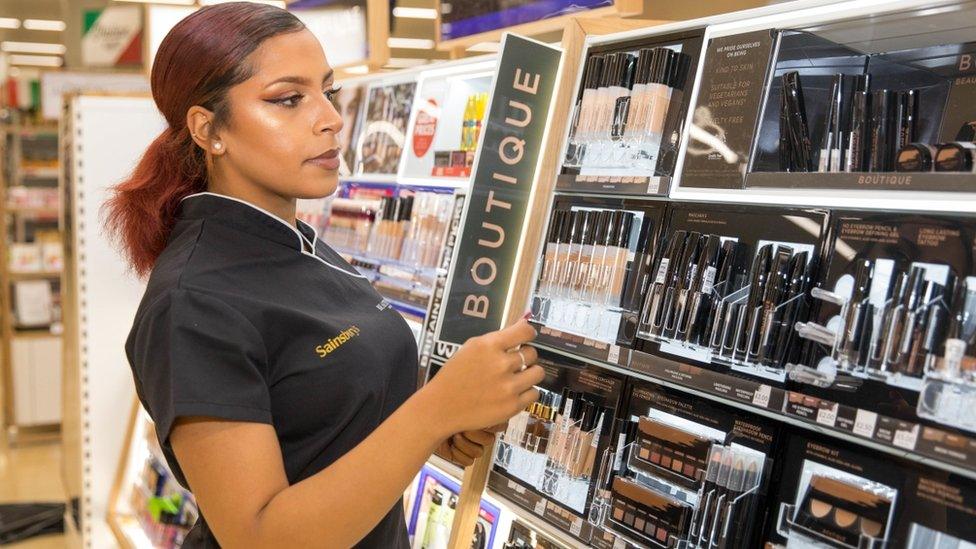SainsburyÔÇÖs gives its beauty offering a facelift
- Published

Sainsbury's is launching specialised beauty aisles in 11 stores as part of a renewed push into the beauty industry.
The supermarket chain said it plans to re-launch its boutique cosmetics range and offer 1,500 new products from brands including Burt's Bees and Essie.
Eight of the new beauty aisles will be staffed by dedicated beauty advisers, in a move aimed at taking on High Street rivals Boots and Superdrug.
The launch comes ahead of the chain's proposed merger with Walmart's Asda.
Concessions of perfume retailers The Fragrance Shop will also be available in two stores, with one opened in Sainsbury's Purley Way store last week, whilst a second will open in Selly Oak later this year.
Extended beauty ranges will also feature in Sainsbury's Fosse Park, Newbury, Purley Way, Leicester North, Locksbottom, Oldbury and Bolton stores.
"We think customers will love our beauty makeover," said Paul Mills, the supermarket's commercial director.
Long shelf life
Market research firm GlobalData says the UK beauty market is set to reach £26.7bn by 2022, with annual spending soaring by £73 to £847 per shopper.
Patrick O'Brien, UK retail research director at market research firm Global Data, said Sainsbury's move was one way for the supermarket to use up its excess space
The chain's pivot into beauty retail comes as shoppers move away from "big shopping missions" and increasingly spend online, he said.
Diane Wehrle, marketing and insights director at research firm Springboard, said beauty products' long shelf life could help the supermarket make up some of the margins it was losing on food.
"They also benefit from the PR and promotion which manufacturers pay for."
She added: "Supermarkets are functional places to shop. What this will enable Sainsbury's to do is make shopping much more of an experience which could increase dwell time."
Sainsbury's previously launched a health and beauty venture with rival Boots in 2001, but the project fell through over disagreements about how to split revenues.
- Published27 September 2018
- Published19 September 2018
- Published1 May 2018